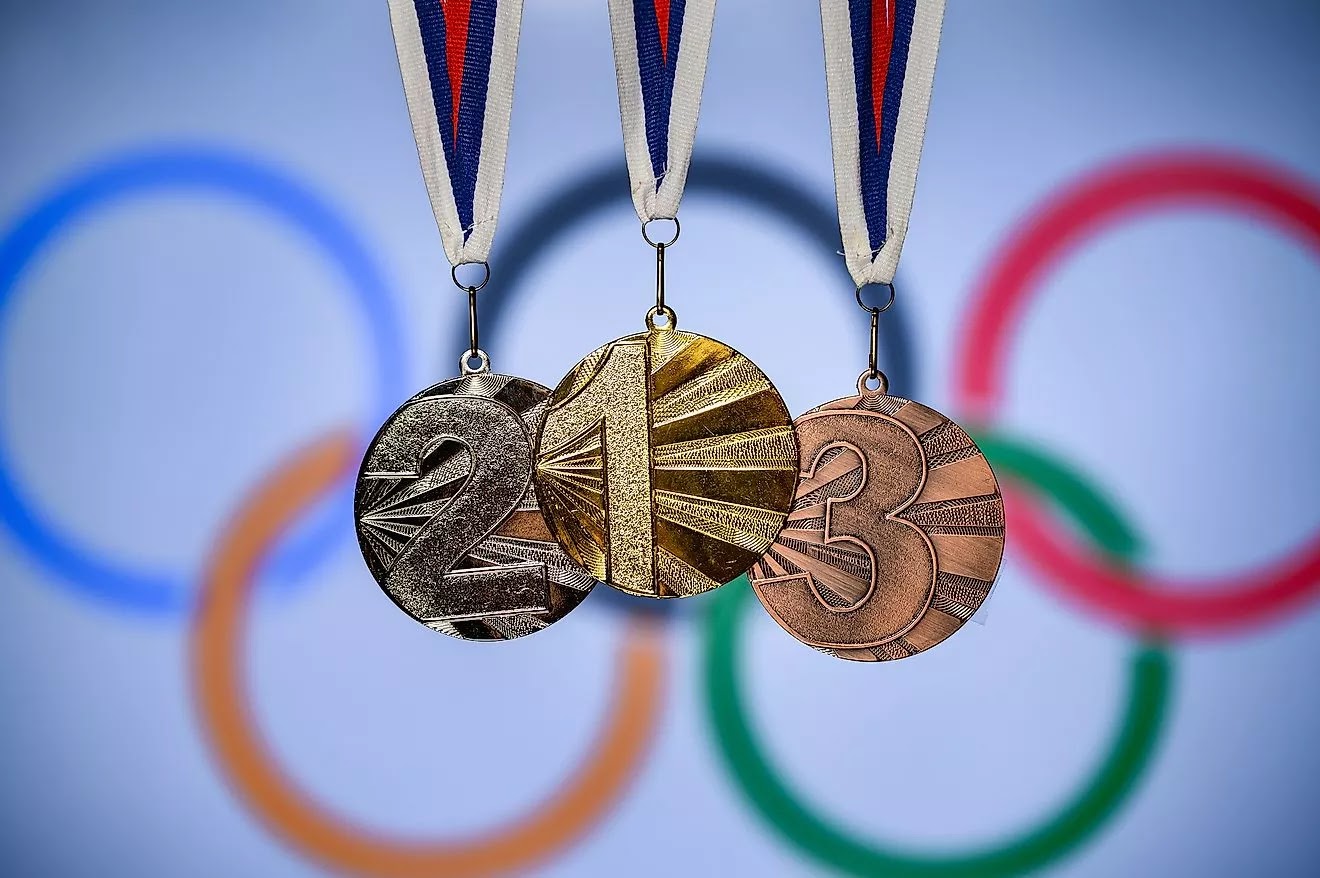Inspiration
Top 7 Athletes With The Most Medals in Olympic History
Participating in the most prestigious event in the world sounds so unreal yet so overwhelming. But winning a gold medal in the Olympics will be the highest level of achievement any athlete could ever dream of especially since the event is only held 4 times a year.
It is once in a lifetime dream of partaking in the Olympics as the athletes compete with the best the world has ever seen and it will be the sweetest memory to beat all the athletes in the world. Regardless of all of that winning a bronze medal in the Olympics is more than enough to make their country proud.
ADVERT
However, there are some athletes out there that took it to the next level by obtaining an absurd amount of medals in the Olympics. When we look at swimming and gymnastics, in particular, these are the two main events that have the most category being contested so it is not surprising that athletes will win more than 1 medal.
We would like to share with you the list of the top 7 best athletes in the world who managed to rake in the most medals throughout the history of the Olympics. The medals shown will be the cumulative medals that have been won from the past Olympics that the athletes have participated in.
7. Paavo Nurmi (Finland,track)
Popular with the name "Flying Finn", he has dominated any track event since the early 20th century setting 22 world records for the 1500 meter and 20km event throughout his 14 years career.
In 1923, he holds the world record in one time for 1 mile, 5000m, and 10,000m events which is an unimaginable achievement anyone could ever pull off.
His best performance will be during the Paris Olympics 1924 where he surprisingly won 5 gold medals in the 1500m, 5000m, and 3000m relay as well as the group and individual marathon.
If that's not good enough, he also broke the world record for the 1500m and 5000m events which he did it with only 1 hour apart between the events. He definitely has the stamina for it.
6. Takashi Ono (Japan, gymnastics)
It takes great effort in order to beat the dominating Soviets in almost all-time gold medalist in gymnastics between 1950 and early 60s. But one Japanese managed to excel and outperform all the athletes in the Rome Olympics in 1960 and his name is Takashi Ono.
In that event, he managed to take home 3 gold, 1 silver, and 2 bronze. It was also his last chance to ever dominate this tournament as he is almost at the end of his career at the age of 29.
ADVERT
But he took part in his last Olympics for his country in 1964 and helped his team win 2 gold in a row in Tokyo before retiring and becoming a sports icon in Japan.
5. Edoardo Mangiarotti (Italy, fencing)
Eduardo Mangiarotti was born into a family that was very fond of fencing sport. Even his dad decided to make Mangioratti change from being a right hand to a left hand so that he cannot be easily defeated by his opponent. He was trained to become very dominant in 2 fencing disciplines, "epee" and "foil".
Edoardo made his first appearance in the Berlin Olympics 1936 men's team epee event. Not just that but he was also involved in 4 other Olympics after the end of the Second World War.
It was during the Helsinki Olympics 1952 that Edoardo was at his peak as he won the gold medal in the team and individual epee as he takes part with his brother Dario.
4. Boris Shakhlin (Soviet Union, gymnastics)
Borish Shakhlin has dominated men's gymnastics for a decade since the early 1960s. The greatest performance in his career was when he was in the Roma Olympics in 1960 where he managed to get 4 gold, 2 silver, and 1 bronze.
He was also known as the metal man due to his determination and always focus when doing something. His great and elastic body definitely has helped him to give the best show and won him the gold medal for the parallel bars and still ring category.
But as he reaches the age of 35, he was forced to end his career in gymnastics after having a heart attack.
3. Nikolai Andrianov (Soviet Union, gymnastic)
Nikolai Adrianov is a professional gymnastic that shines in the 1970s after partaking in Montreal Olympics in 1976. He managed to win 4 gold, 2 silver, and 1 bronze in a very dominant show.
Despite winning gold in the 1972 and 1980 Olympics, it was in Montreal that he managed to get gold for all-around categories.
Adrianov then end his career as an athlete after the Moscow Olympics in 1980 and became a coach for the Russian junior and senior teams as well as the Japanese gymnastics team.
Soon later he suffers from a rare neurological disorder and passed away in 2011 when he was 58 years old.
2. Larisa Latynina (Soviet Union, gymnastic)
It was in the 3 Olympics from 1956 until 1964 that Latynina helped the Soviet Union become the dominant powerhouse in gymnastics. She managed to make an appearance in the Melbourne Olympics and obtained 4 gold.
Her background as a dancer has given her the advantage to amaze the judges with her flawless move. When Latynina won her final 6 medals from her 18 throughout her career, she was only 2 months away from her 30th birthday.
ADVERT
Many gymnasts have far retired before reaching that age. She holds the record for most medals won in Olympics for so long until it was broken by a swimmer, Michael Phelps.
1. Michael Phelps (United States of America, swimming)
Michael Phelps stays in his very own class and has created probably the greatest record that seems impossible to be broken by any athlete out there. He managed to win 28 Olympic medals in total, the most gold won overall (23), the most gold won in one Olympics(8 in Beijing Olympics), and lastly the most record to be broken for swimming (39).
Michael Phelps also did all of this without any controversy, was very humble, and probably become the greatest sports icon that should be set as an example for all athletes.
Even though he was diagnosed with Attention Deficit Hyperactive Disorder(ADHD) in his early life as well as fought against depression after he retires, he will always be the inspiration for other swimmers that wish to achieve something great in their life.
Source:
Also read: Top 6 Doping Scandals in Sports
















Post a Comment
0 Comments